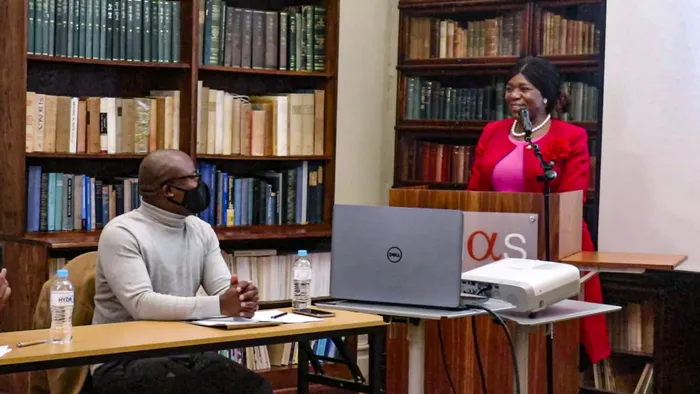Youth should trust democracy - Madonsela

Former public protector Professor Thuli Madonsela addressed a panel discussion on ethical governance, at the Stellenbosch Institute for Advanced Study.
The youth of today still have a lot to do, and young people’s work did not end on June 16, 1976.
This is according to former public protector Professor Thuli Madonsela, who was addressing a panel discussion on ethical governance on Tuesday June 15, hosted by economist Mmeli Sotshononda at the Stellenbosch Institute for Advanced Study (Stias), a research centre associated with the Stellenbosch University.
“I was saying to my daughter, the youth still need to do something in this country. The youth did not end June 16; children ended June 16,” she said.
“It was wrong that government attributed this day to the youth. We know the youth delivered Fees Must Fall, but we’re waiting to see what they can deliver for us all. That’s my challenge to the youth.”
The panel comprised vice rector for social impact, transformation and personnel Professor Nico Koopman and planning, economic development and tourism portfolio chairperson and councillor Esther Groenewald.
Professor Madonsela said ethics was ultimately about “doing the right thing the right way for the right reasons”.
With reference to lockdowns encroaching on people’s liberties, Professor Madonsela said: “It’s not the president’s fault; it’s because some of us refuse to be ethical. Ethical is doing the right thing because it’s the right thing to do.”
She said that when talking about ethics, state capture and corruption subconsciously rang in one’s mind. “But what if a person is racist, sexist, xenophobic... Is that an issue of ethics?”
Professor Madonsela said young people had a “weird” tendency of rejecting democracy.
“They think democracy doesn’t work for them. You even find Oxford graduates who say, ’We don’t want democracy.’”
She urged the youth to take charge of the future.
Professor Koopman said leaders needed to mobilise intellectual, governmental, cultural and religious resources to build ethical citizenship and leadership.
Political activist Lwando Nkamisa asked whether ethical leadership was career-limiting, because unscrupulous leaders appeared to stay in politics longer.
Professor Madonsela said that in the short term it might be career-limiting to be an ethical leader. However, she added: “In the long term, you get what you deserve.”